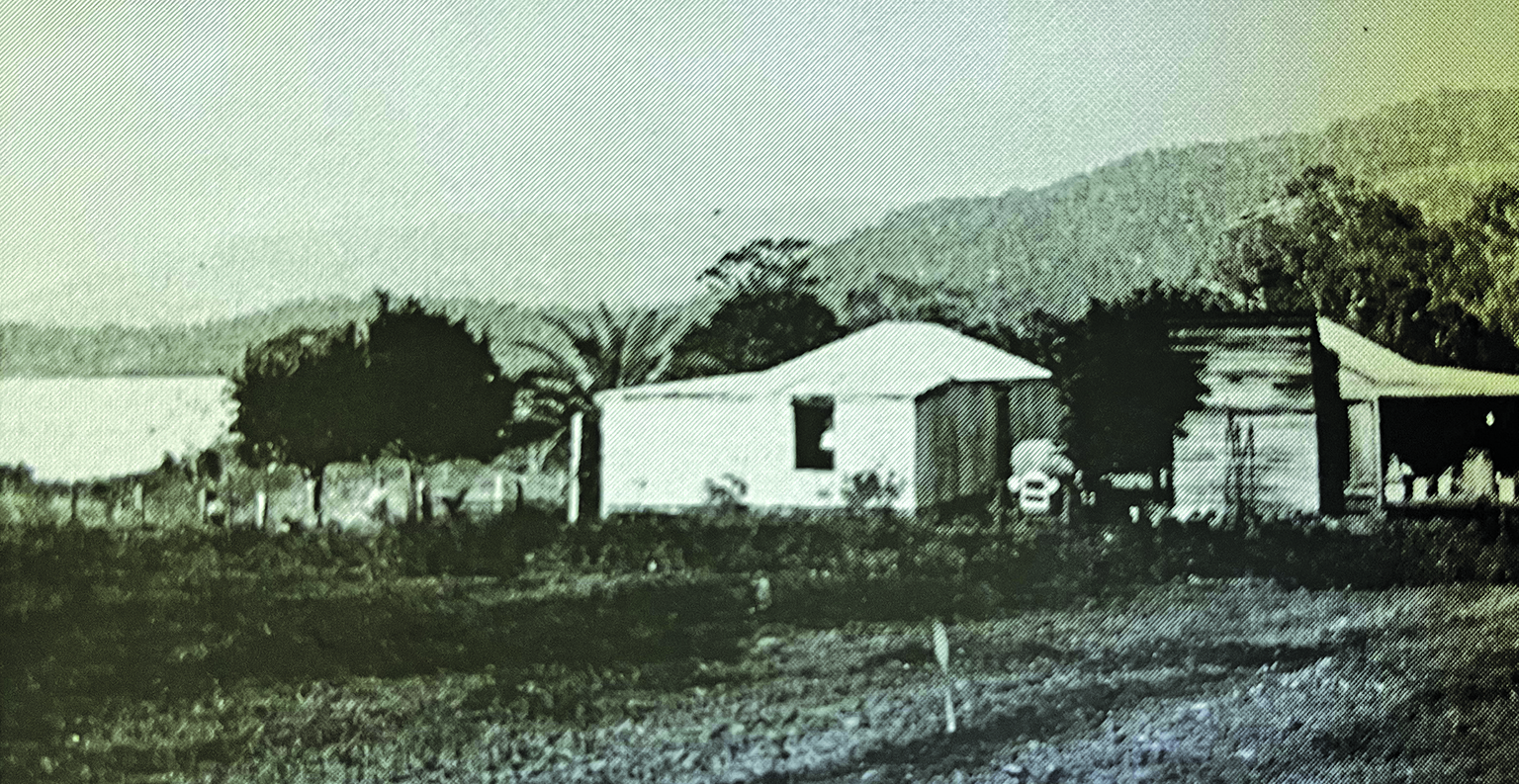


If you are walking down Main Street, Airlie Beach around dinner time, you will find no shortage of places where you can acquire the basic needs of food and shelter. Not so 118 years ago when Dick Abell arrived there.
In August 1904, Richard (Dick) Abell and wife, Annie, stepped ashore at Horseshoe Bay (present name Airlie Beach) with their children - six boys and four girls ranging in age from babies to twenty years old – along with their niece and her husband, Lily and George Wright and their two-year-old son. They brought with them food for three months, a beacon light stove, Annie’s sewing machine and Dick’s coach building and logging tools. Tents were erected and drinking water located nearby. After Christmas 1904, a temporary home was constructed using bush timber. They built a more permanent home in 1909 on the site that is now Whitsunday Wanderers.
Dick arrived with hardly a penny to his name yet he ended up owning the whole of what is now known as Airlie Beach.
The family applied for land near the seaward end of Cannon Valley (as it was called at the time) in the names of Dick, his three eldest sons, Arthur, Thomas and Alfred; and George Wright. George’s application, the only successful one, was for land near the old Cannon Valley School site, now Abell Road. But notice was given of more land opening in what was to be known as Jubilee Pocket. The freehold land, going for the princely sum of 2/6d per acre ($20/acre in today’s money), was rainforest country considered suitable for cane production. This time they were successful with blocks were awarded to Dick (Block 56, now the township of Airlie); Arthur, Thomas and Alfred (Blocks 58, 59 and 60, which is now Muddy Bay).
This courageous, hardy family fought hard to survive in what was to them a hostile environment. At first, they considered planting cane, however, there was no road between Airlie Beach and Cannon Valley (now called Cannonvale) and only a narrow country lane as far as Brandy Creek in the Proserpine direction, totally unsuitable for transporting cane. The absence of roads proved to be the greatest stumbling block for whatever they were able to grow – cane, vegetables or tropical fruit. They finally resorted to building their own road – a dangerous and slippery road over steep ridges that resulted many times in near tragedy. A brief foray into cane growing in 1918 was unsuccessful – transport was the still a problem.
Japanese fishermen befriended the family and purchased produce from them which helped the family survive and they also fished for a living and for the table.
They were successful with shipping timber from Hook Island to Bowen and later, Dick took out a lease on Hayman where his son, Arthur, ran sheep.
If you would like to read more about this fascinating family, the Proserpine Museum has for sale, copies of “Three Abell Men”; a wonderful family history full of adventure, laughter and mishaps experienced by one of the most notable of pioneering families in our district.
Story courtesy Proserpine Historical Museum and photos sourced from “Three Abell Men”.
Dick and Annie's second home in Airlie Beach – 1909
The Abell Family net fishing at Muddy Bay Arthur rowing, Edward and Beatrice with the net